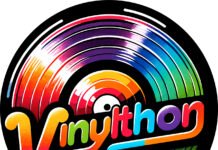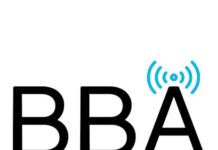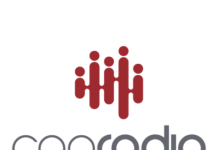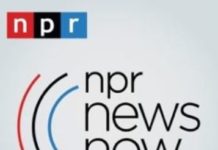
(By Richard Burns) That was a question that Fred Jacobs posed in a post on social media and in a Jacobs Media blog. To say it generated some spirited debate would be an understatement.
Radio is meant to be local. It’s meant to serve the community of license that’s why we have the license in the first place. If you can’t make that financially work there’s bigger problems – and maybe there are.
The question then becomes what is the problem? Is it radio stations are laden with so much debt they can’t create local radio? The insatiable need for cash to pay crushing debt drains great radio stations of their lifeblood – local talent and local connection. Is it too many competitors for ever-smaller revenue pies or is it structure of the markets themselves?
The fact is that radio stations can be great cash flowing businesses even when (or because of) providing expensive local service if the market is properly structured. All radio markets are not created equally – metro radio is different to regional radio and small market radio. It’s not possible for station in LA to be as local as a small market station – or is it?
I’d encourage anyone who studies the industry to check out Guy Zapoleon’s book on KHJ LA and read the memos from PD Ron Jacobs and consultant Bill Drake. What ‘local’ means for each market can be different. I was impressed to learn that KUZZ in Bakersfield has always been live! Wow that’s awesome! Live however isn’t the answer; of course it is one component.
It’s not much good being live if the talent doesn’t use that advantage and is just doing liner card radio. We must hold a mirror up to the community and really connect with the audience. Make the local listeners the stars. I feel that if you listen to a station and within 30 minutes you don’t hear something that anchors the station to the community it’s not good enough. I don’t mean PSAs or weather (and yes, stations should do local weather – there’s something else for people to argue over). I mean truly connecting.
Not every station in every market can be hyper local but surely at least one could be? This is what I mean about structure. Some stations in a market should be local, others regional and others national brands – brands that don’t pretend to be local but are true national brands. I’d want to have one of those in my cluster!
What works in my markets won’t necessarily work in others but my experience tells me that when you serve and I mean really serve your local markets, the revenue follows and the revenue sticks.
For years small and medium market stations have fought it out with local newspapers for local revenue – we are now winning this revenue battle thanks to sticky station websites and apps that provide local news, info and engagement. I fully agree with Fred Jacobs when he says, “It’s never too late to do great radio that serves your community.”
Richard Burns was the first non-American to be granted a foreign ownership waiver by the FCC. He currently owns 18 radio stations in four markets. Richard can be reached at [email protected]






Wow, all of this is a great reminder of why I made the career switch long ago from commercial to noncommercial radio!
Want to hear radio that was FUN to listen to? Dig up some airchecks from the mid-60s from such stations as WABC and WMCA, New York; WIBG, Philadelphia; and CKLW, Windsor (Detroit). The jocks were engaging, they played the hits, and commercial content was scattered throughout the hour, with some spots being read live. The listener didn’t have to hear boring liner cards nor did he or she have to sit through a 15 minute clot of commercials. Yet all of these stations had plenty of spots per hour. So Top-40 was not your thing? Try airchecks from the same period from WNEW, New York; WIP, Philadelphia; or WJRZ, Newark. All of these stations had nice, friendly jocks who sounded like someone you would invite into your home. And, in fact, you did whenever you listened to their shows. Morning shows were both informative and entertaining, with none of the filth that plagues today’s morning shows.
Voicetracking? On the corporate stations of today, I have heard voicetracked announcers, imported from hundreds of miles away, mispronounce place names. Cut, cut, cut your way to profitability!
Don’t forget 1010 WINS New York before they became a News/Talk Station. Not to date myself but I still remember the CKLW jingle and can sing it to this day.
Oh, yes…Murray the K with the Swinging Soiree…on 1010 WINS, where the fun begins. WINS was never news/talk, just all news. They flipped to news in the spring of 1965 and continue as an all-news station to this day. “All news, all the time. You give us 22 minutes and we’ll give you the world”. And I still remember their jingles from when they played music! Also, “Radio 8, CKLW” and “Radio Eight-Oh, CKLW, in Windsor, Ontario”.
Working for Richard for 4 years, he has been a champion of the great see-saw, between local radio and creating radio that sounds local. One of the frustrations we deal with is when we are live and local, the talent in situations like ours tend to be title and artist and execute low-hanging fruit breaks. So we work hard to develop the stationality of each product to blend the talent into the vibe of the prospective station. Our syndicated shows have countless localisms, liners and daily changing information point for them.
Local is local. Includes giving the time, local weather, local promotions, liners about events locally at that moment.
Local is NOT syndicated, disguised as local. Stop conflating the two. People are not that stupid.
Time, weather and liners? Good grief. Boring and exactly why radio has lost its grip. Radio DJ’s are too busy making sure they say “W” perfectly than to actually do something entertaining. Time and weather… somewhere right now the 1970’s are smiling down…
It has to be live, local and compelling radio to really be successful. That said, the live and local parts are still vital for radio to have any success. We have major market stations airing syndicated programming during formerly important time slots, such as evenings, middays, and of course mornings. At least the latter is usually accompanied with local news and cut ins. The rest are the same whether you’re in Chicago, Little Rock, Albany or Tucson.
Of course, there was a time when radio was huge, and almost everything was live and local – even in small markets. Large conglomerates have killed any aspect of that. Now you get vanilla and in most markets, there isn’t anything compelling enough to bother listening to. Why not just listen to your own playlist, or something online? That’s what most people under 30 are doing now. And, I can’t end my rant without giving kudos to the likes of iHeart, Cumulus and others who have been working so hard to destroy this industry by “cutting their way to success” and by homogenizing radio to the point where not much of it is worth bothering with. Nice job guys.
You are right. Technology like Android play and Apple play already was seriously eroding the relevance of AM and FM. And the actions of Infinity and Clear Channel– both obviously changed their names, with one going bankrupt and the other being sold- only expedited radio’s demise. You cannot run 10, 12, 14 or more commercials in a row, without the consequence of driving many listeners away, and seriously hurting the impact for advertisers whose spots are buried in the middle of a break. You cannot decimate your local air staff, replace them with voice tracking or syndicated shows, and not avoid losing credibility and relevance in your market.
Radio’s answer is their facsimile version of “digital” products. But radio station web sites are not serious players in terms of total visitors. And taking your radio station’s broadcast – bloated with heavy commercial loads and no serious local relevance- and putting that online and passing that off as “digital” is a fool’s mission.
You are right. Corporate radio ownership – in the past, Lew Dickey with Cumulus and Karmizin with Infinity, now Pittman with Clear Channel/then iHeart, plus others, have systematically absolutely destroyed the local relevance, and the overall relevance, of many many AM and FM stations, especially in major markets.
“Live and Local” is too many times an excuse for boring and lazy. “Yea, but we’re local?!”…. Right, but you’re also doing the same predictable crap everyday. By the way, take a look at how way syndicated programs have been created…. “Local” is usually App content; things people find on their phones. No one cares about what you ate at the state fair… no one, yet every year the same boring content returns. Interesting and curious is more important than local.